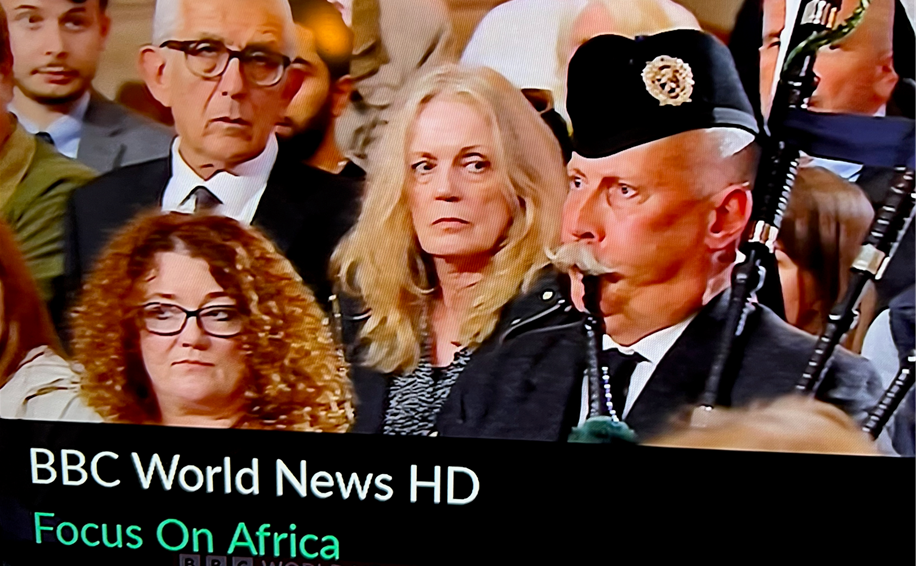Social media has been rife with criticism of Queen Elizabeth’s funeral, even from those members of the public who loved her. It represents money wasted in a nation facing financial crisis, the denial of British colonialism and slavery that the royal family has never formally apologized for, the whiteness of the endless days of events, and the obliteration of all other news — not the least of which is the devastating flood damage in Britain’s former colony of Pakistan, which is also a member of the Commonwealth.
There is no doubt that Queen Elizabeth carried herself with quiet dignity no matter the political or personal turmoil around her, and perhaps that is why even critics of the monarchy today still regard her with respect, particularly in contrast to the dark circus behavior of many of the prime ministers who came and went during her reign, not to mention several of her family members.
Perhaps it is this respect in combination with revulsion that found few of us unable to resist tuning in occasionally to see what was coming next in this week of inventing medieval-style tradition for the first globally media-atized death of a British monarch since before TVs were in every British home, never mind smart phones, and since before we had the word “post-colonial.”
But what wasn’t covered is the cost of death, as opposed to funerals. How could so many TV reporter gush about King Charles III behaving so bravely during his grief? In a rapidly aging Europe, the Queen passed away quickly, in a castle, surrounded by her family, and probably her beloved dogs. She could probably look out at her horses. She outlived all her children, leaving them all in good health, including an heir apparent older than the average lifespan of most of Britain’s former colonies. In her 96 healthy years she did not struggle to put food on the table, find or keep a job, or endure war and other upheavals.
King Charles did not have to give up any of his time to his parents’ care or have to figure out how he would pay their medical bills. He did not lose his parents at a young age — that does require bravery, like his sons most certainly needed no matter how much privilege they had. Navigating the world without parents always leaves a void.
But Prince Charles had his parents longer than most of us will, as we will likely not live as long as Queen Elizabeth did with good finances and in decent mental and physical health. And most adult children are not likely to be in a position to give up their own jobs to take care of their parents fulltime.
Death is for so many a mentally and physically exhausting process that depletes many families’ finances. And there is the grief of watching our parents suffer a long journey to the other side. We often suffer that grief alone, as taking care of aging parents often quietly tears families apart. We certainly don’t have the whole world available to mourn with us.
As we live longer and as medical care costs increase faster than inflation, it is not King Charles who knows what being brave is. We all dream of our loved ones having a death with as much dignity as Queen Elizabeth — that they do not need to find bravery, nor do we in our grief. For most of us, it is only a dream.
The Queen’s death is perhaps the greatest crown jewel she left her son. He did not have to be brave. That is the story I wish journalists had covered, alongside the increasing bravery we all need to deal with the grief of aging in the current world.

